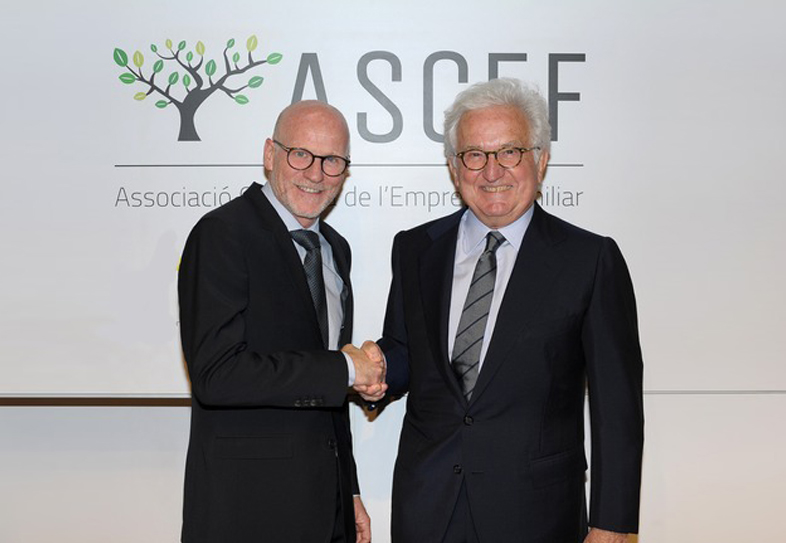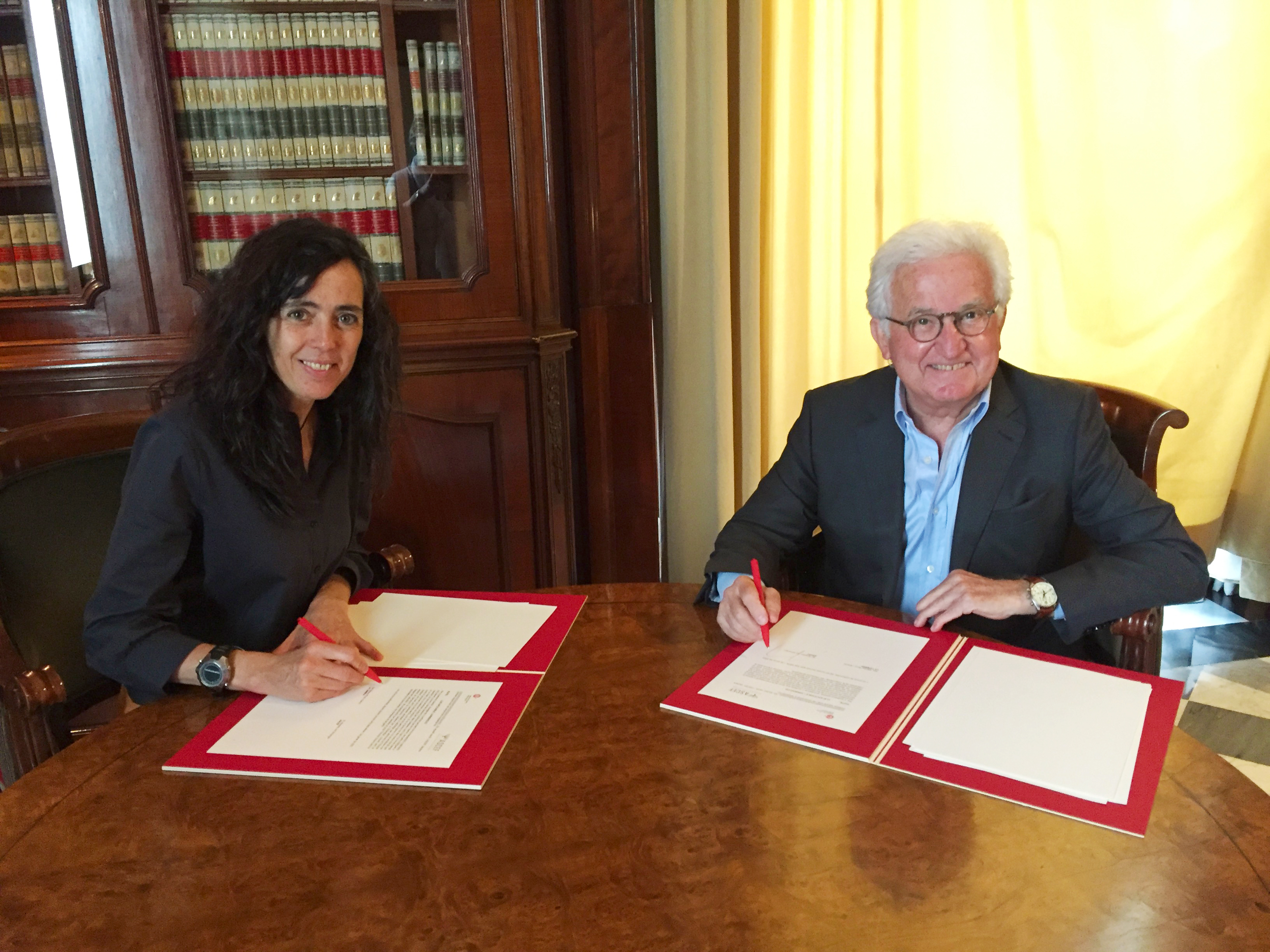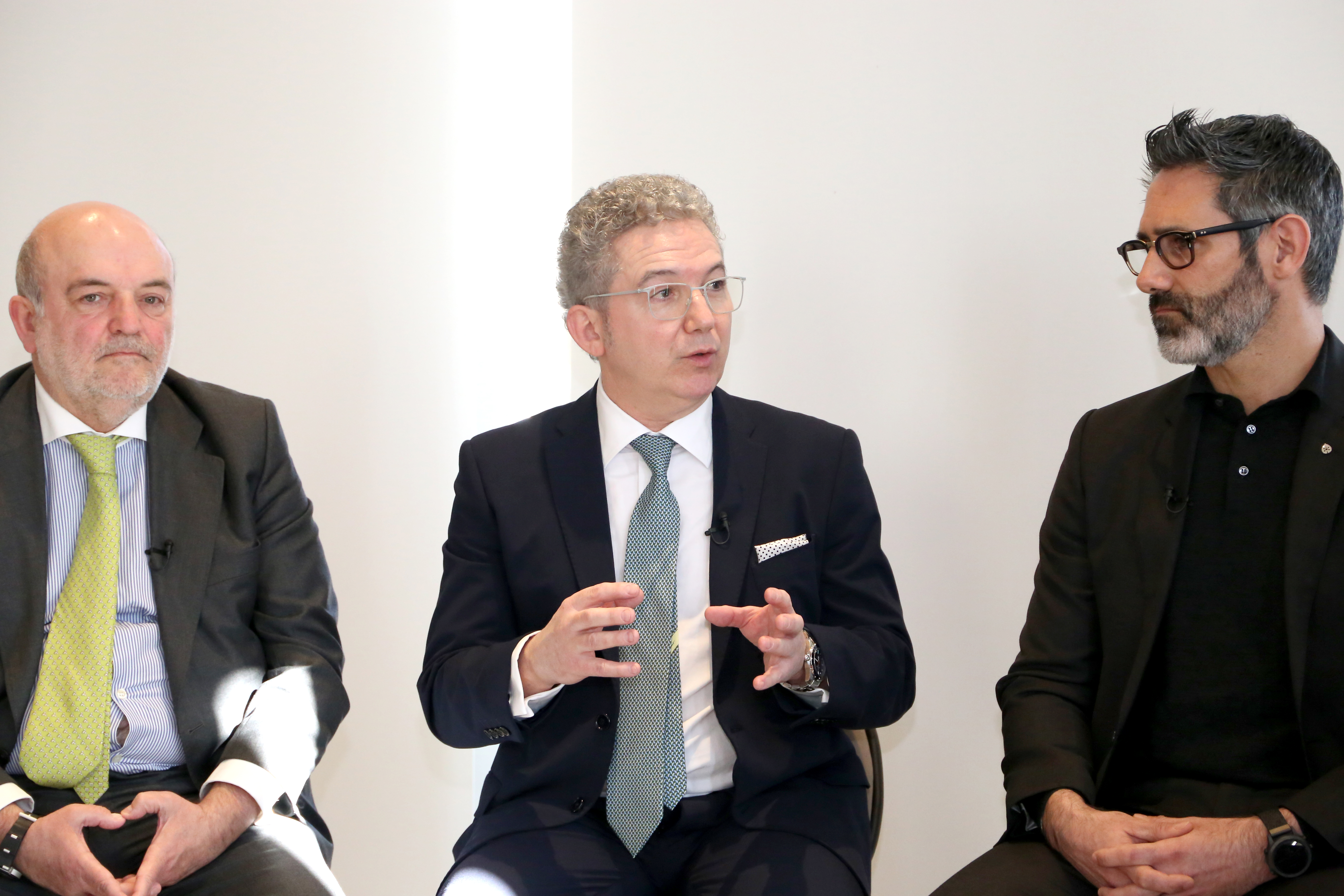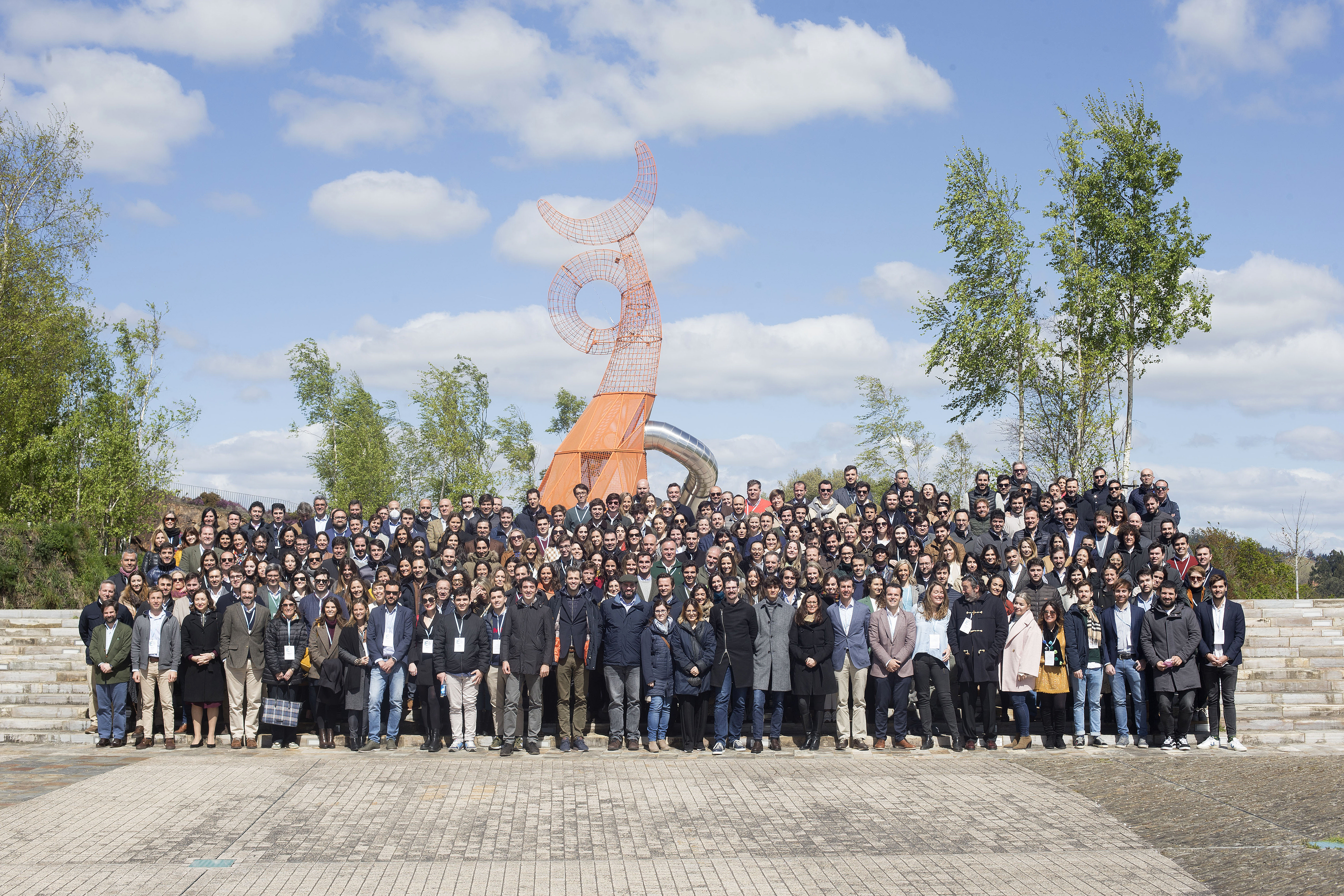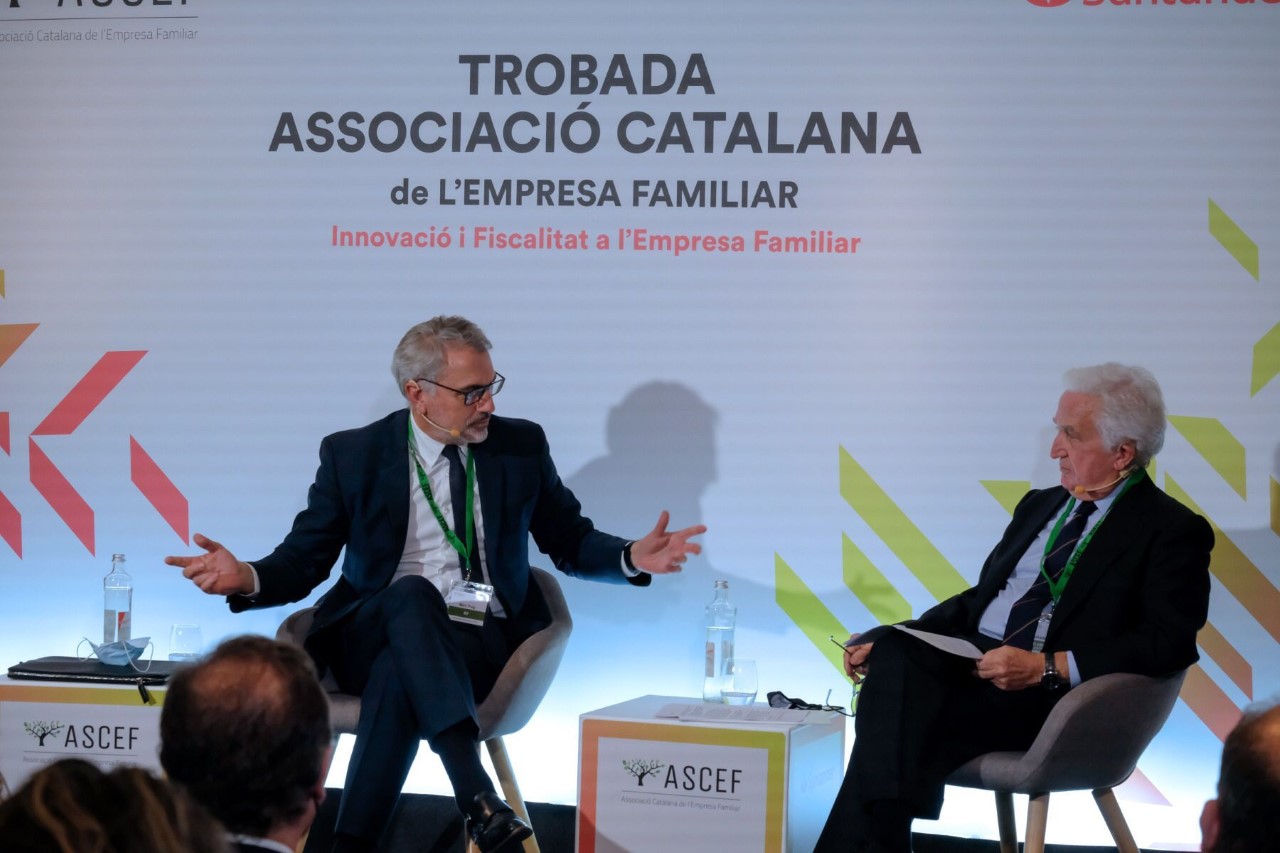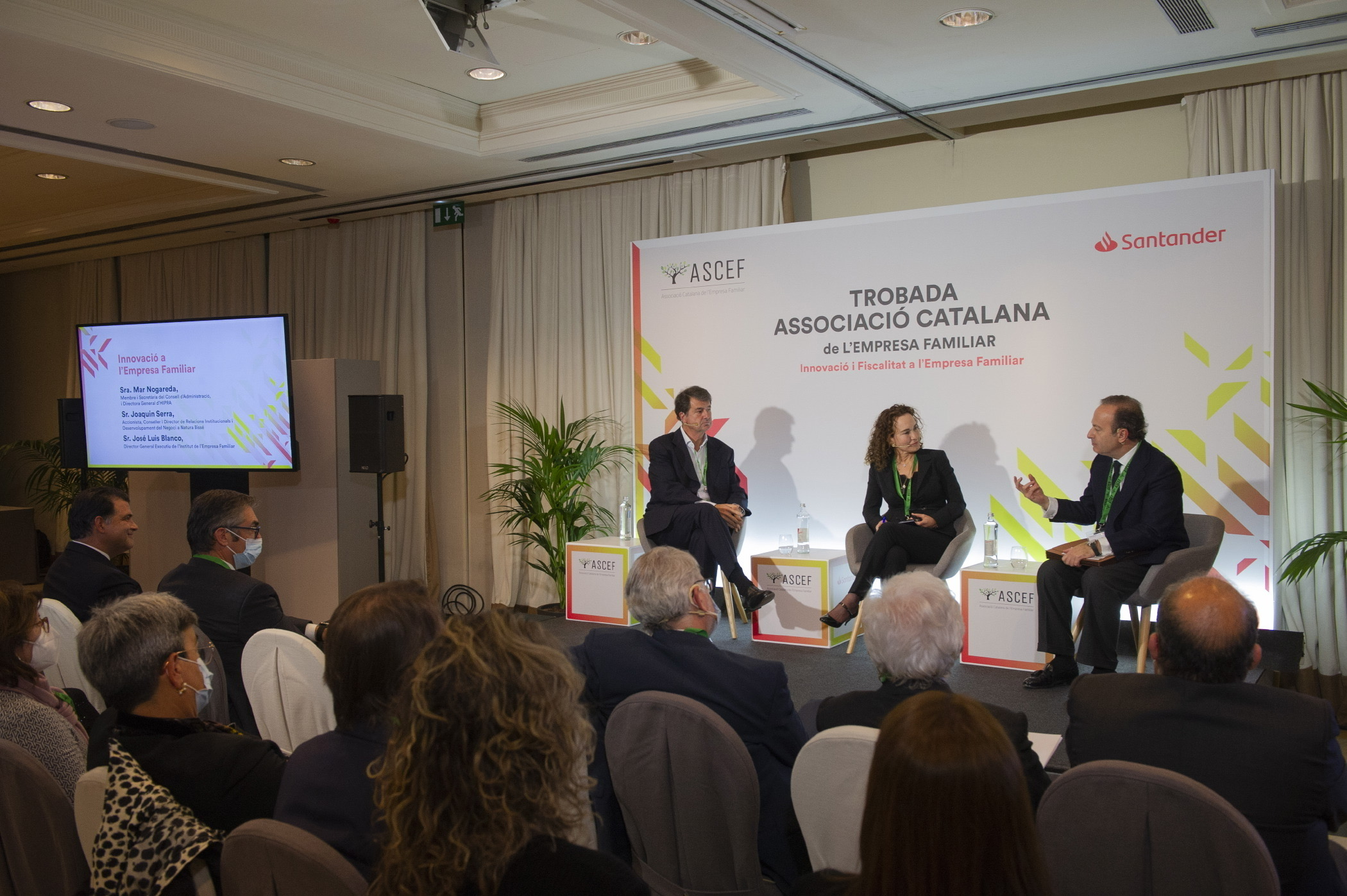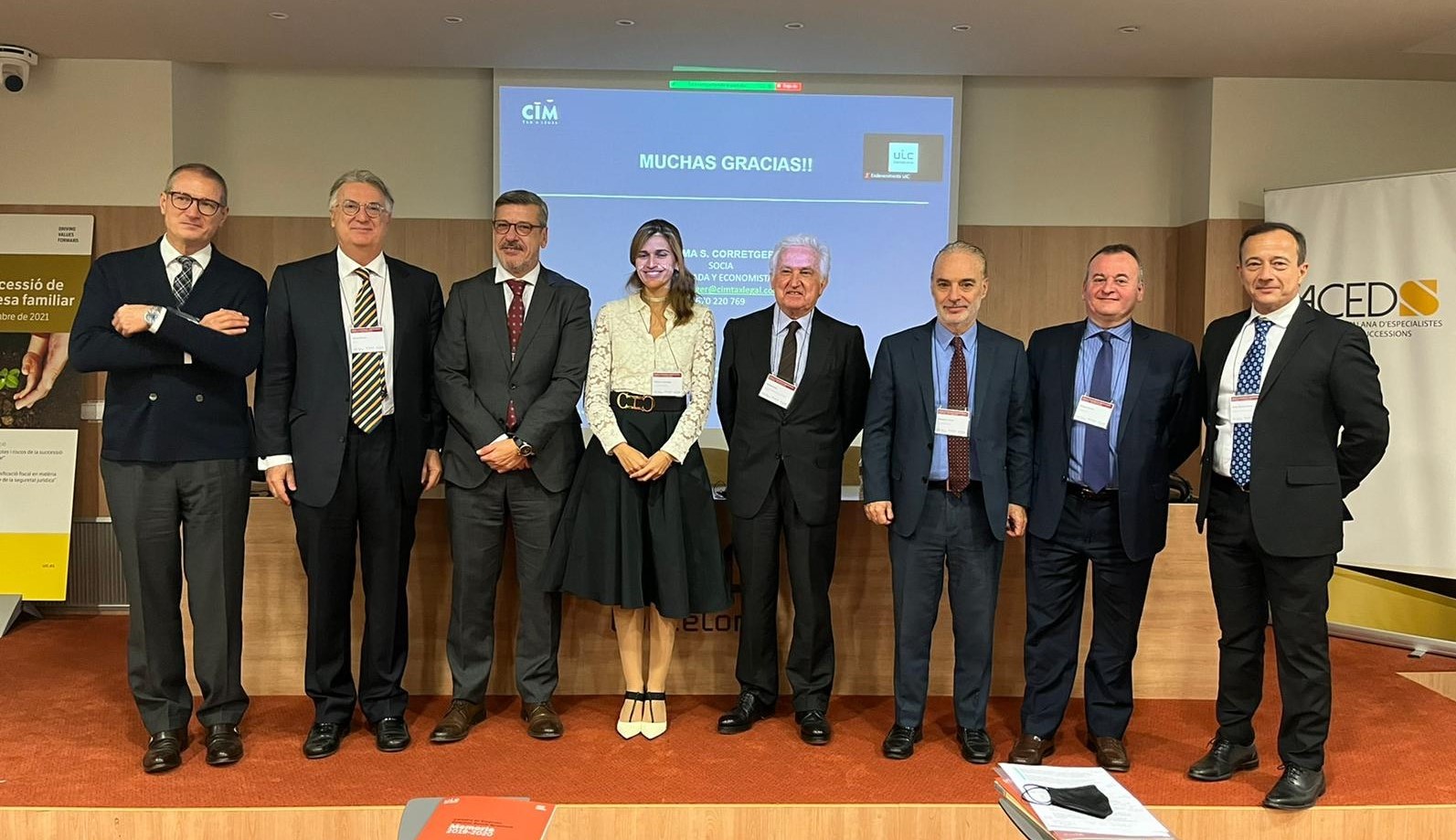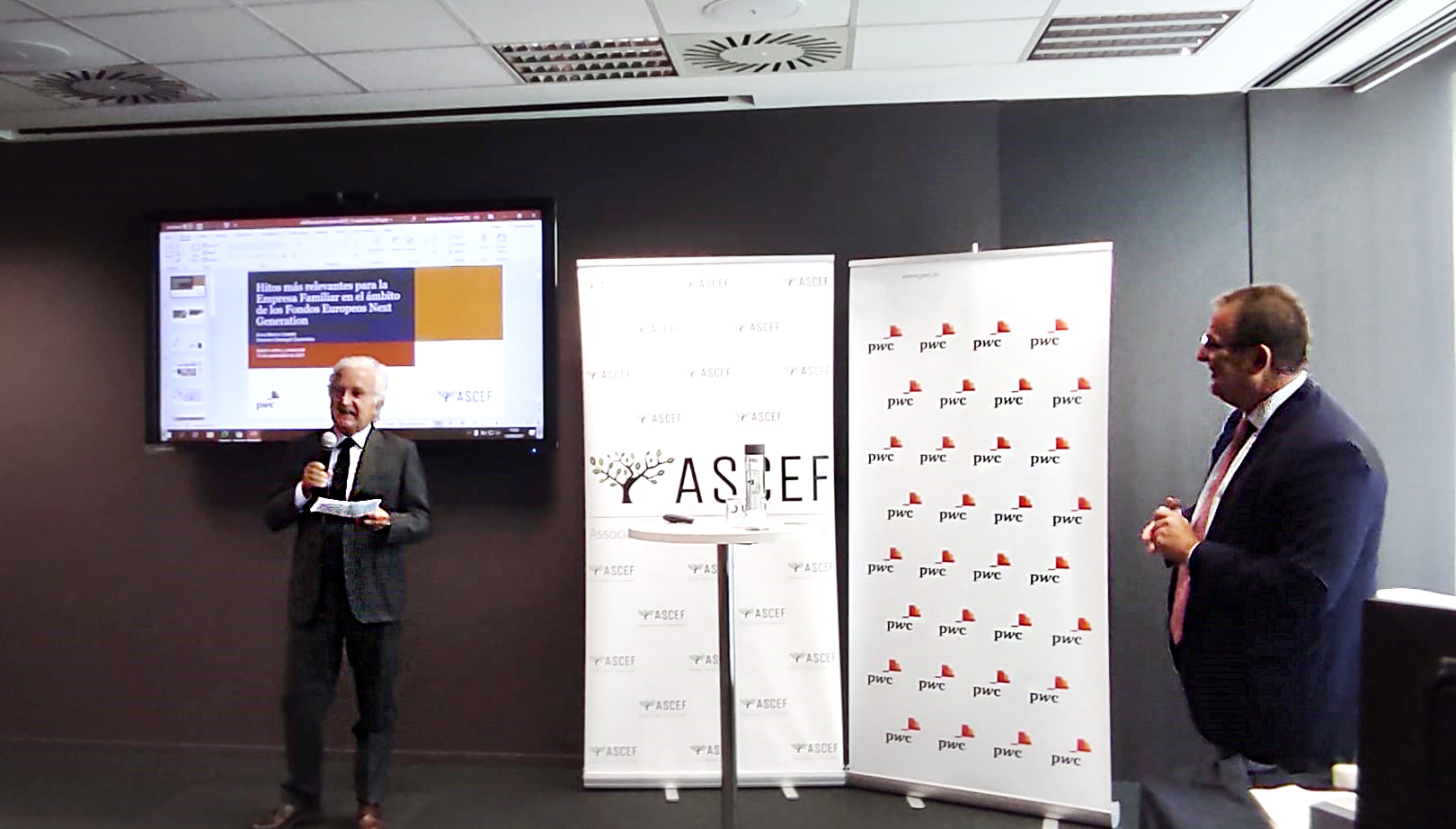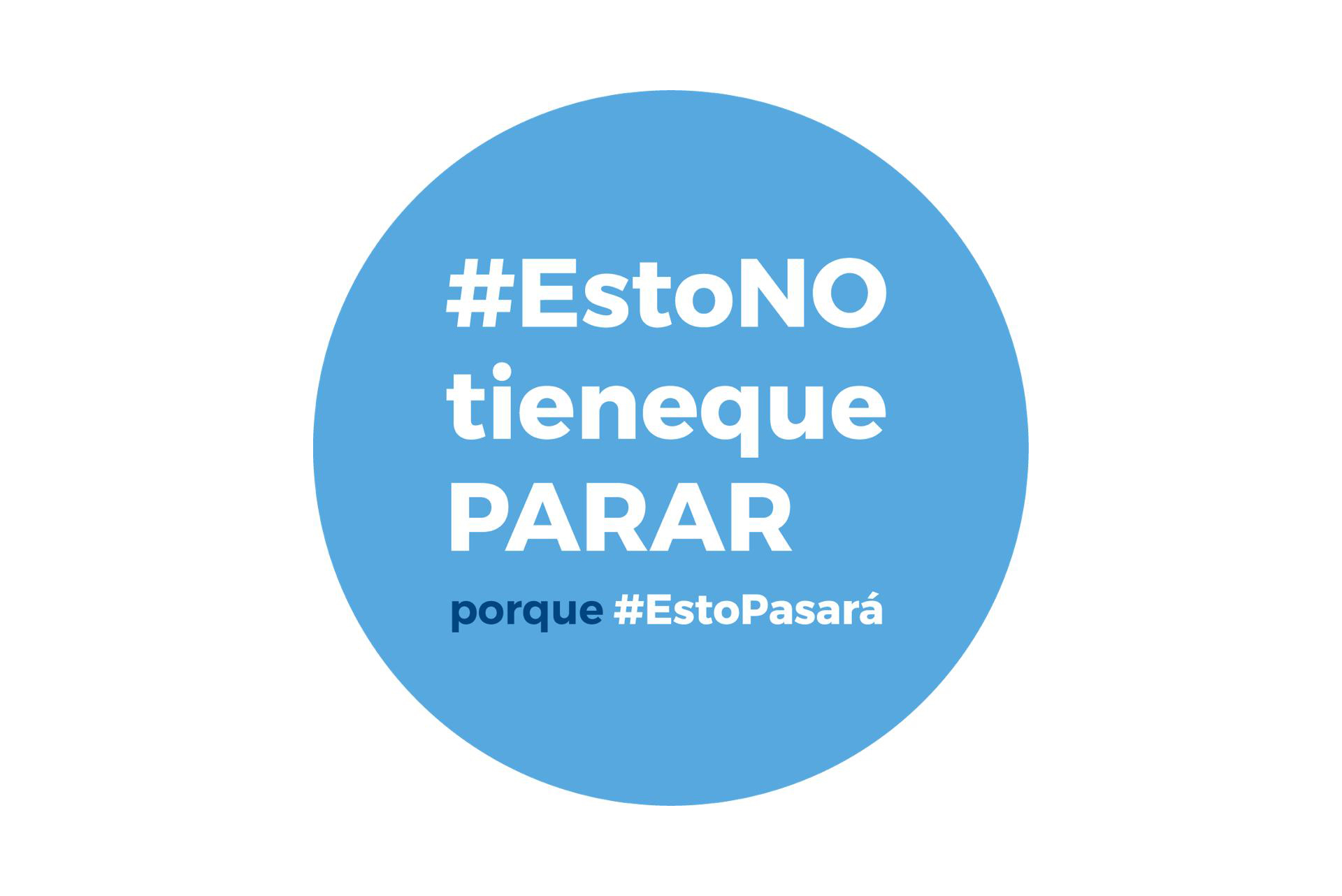Under the slogan “We work for a better society”, around 300 youngsters from entrepreneur families of all Spain met last weekend in Santiago de Compostela.
Santiago de Compostela, April 4th, 2022. Sustainability, innovation, and commitment are the three pillars around which has pivoted the 18th National Encounter of the Family Forum, which gathered, in Santiago de Compostela last weekend, around 300 young members of entrepreneur families from all over Spain, organized by the Institute of Family Business and the Galician Association of Family Business, with the collaboration of Deloitte and Banco Santander.
The encounter, under the slogan “We work for a better society”, has served as a scene to reassert the commitment of the new generations of family businesses with the daily implementation of ESG standards that address the environmental effects of a company, their impact on the social environment and their communities, as well as the best corporate governance practices, which relate, among other things, to the composition and diversity of a company’s Board of Directors, public communication transparency policies or codes of conduct.
The meeting held in Santiago also provides this group of young entrepreneurs a greater understanding of the challenges posed by a family business, being at the same time a venue for mutual acquaintance and exchange of personal and business experiences among the future leaders of the Spanish family enterprises.
On Friday afternoon, the participants in the encounter visited FINSA facilities (Financiara Maderera), a Galician family business dedicated to the wood realm since 1931, which tops 830 million euros in sales and has placed sustainability as the main pillar of its strategy.
The “Good Santiago Pilgrimage”
The academic session, conducted by the Galician journalist Gladys Vázquez, started on Saturday with the welcoming speech of Inés Rovira, Director of AATT and of the Business Family Institute Forum, who reminded the assisting youngsters that the reunion was a good opportunity to take a time to listen and reflect on “how to work for a better, more modern, technological and human society”. Meanwhile, José Juan Pérez Tabernero, Institutional Relations Director of Santander España advocated for the legacy of the linage family entrepreneurs “to whom we owe the current Spain’s prosperity and stated that “when in addition to taking business ventures you risk your own patrimony, you become a true entrepreneur”. Fernando Vázquez Castro, associate of the family business, Deloitte, noted how the pandemic has taught us about the fragility of everything and, at the same time, has placed value on small things. Lastly, Víctor Nogueira, President of the Galician Family Business Association, compared a family enterprise with the lessons learned from “The Good Pilgrimage of Santiago”: Legacy, history, and a paradigm of how things should be done”.
The energy-technological transition the world is undertaking and the need for this process to be fair and efficient were the focus of this first academic session headed by María Victoria Zingoni, Repsol’s General Manager of Clients and Low Carbon Emissions. Zingoni underscored the critical moment experienced by the energy sector due to such peculiar circumstances as the price hike and the geopolitical situation and conveyed the compelling need to achieve a balance that encompasses the safety in supply, universal access, sustainability, and competitiveness.
The unstoppable digital transformation of enterprises
With the title “Technology and Business Globalization in a Sustainable World: from Conflict to Opportunity”, Patricia Riberas, Gestamp Manager of Transformation and Organization, interviewed César Cernuda, Gestamp Advisor and Global Head of NetApp. Cernuda added that the pandemic has accelerated the digital transformation of companies as part of an irreversible process; in his turn, Riberas stated that in order to approach this movement successfully, family businesses should assume an unrestricted radical cultural change.
The third session focused on the role of young CEOs in family businesses and featured the participation of Jaime Gorbeña, Bergé y Cia Executive President; Julio Iglesias, Grupo Revi Managing Director; Víctor Leal, Board of Directors member of CL Grupo Industrial, and Juan Moya, Persán Vicepresident, who talked about their experiences when taking on the management front lines at their companies. In this way, Gorbeña underscored that we need people around us who can tell us “to keep things clear and alert us when we may be going crazy”. Juan Moya emphasized the importance of having clear paradigms, passion for projects and of keeping egos below the company’s interests. Julio Iglesias indicated that when assuming the greatest responsibility, it was very important for him to know himself and rely on the teams, also to be orderly, practice good habits and have an adequate preparation. In the same way, Víctor Leal noted three aspects to worked on in a conscientious manner: compromise, generosity, and order.
A trip of many crashes
Gabriel Torres, Pascual Innova Director; Carlos Gómez, cofounder of 7r Ventures and Cristian Ull, cofounder of Area 101, covered in their panels the challenges faced by organizations in their corporate innovation. Torres reminded that innovation is something as easy as the generation and implementation of novel, amazing and useful ideas that create value, and that family businesses play with an advantage in the innovation field, since they have the sufficient patience to bring projects forward. Carlos Gómez, on his part, challenged the young assistants to the session to “serve as standard-bearers of their companies’ evolution because the business you will be leading are not the ones you know now.” Meanwhile, Cristian Ull revealed that innovation “is a trip of many crashes where you rectify and do things the right way”.
“Osborne 250 years. Legacy and Future”, was the title of the following round table attended by four outstanding members of this business saga: Ignacio Osborne (Grupo Osborne President), Fernando Terry (Managing Director), Rocio Osborne, (Communication and PR Manager for the Group) and Carla Terry (Institutional Relations). Ignacio Osborne cited some significant numbers of this great group: 340 stockholders, 250 years of history, six generations of managers and one family. And a lesson learned through all these years: “Priority of the business over family interests. The family is the silver medal, the company is the gold medal”.
Fernando Terry emphasized the vision that has inspired the family to grow the business during these two and a half centuries, while Rocío Osborne expressed that, in her opinion, Spanish family businesses “need to share our values with the international markets”. Carla Terry, on her part, specified some of the projects that the company has set in motion in order to maintain the business spirit in different members of the family branches.
The sixth session of the day was led by a group of Galician entrepreneurs: Emilio Froján (founding CEO of Velca), Catalina Fernández (Hifas da Terra President) and Cristina Gamallo (Founder Partner of Situm), and acting as moderator, José Miguel Alonso de Ozalla, responsible for Red de Empresas y Servicios Especializados de Santander España. José Miguel Alonso categorically declared that we are in an era of entrepreneurship in Spain. This was shared by Emilio Froján, who also revealed that “a success case consisted of millions of failures”. Cristina Gamallo, on her part, presented a case illustrating how it is possible to go from research to entrepreneurship, such as the Galician GPS for interiors used in more than 20 countries. For Catalina Fernández, innovation is a question of survival: “Fit or disappear”, she claimed.
The day was completed with a presentation entitled “A Story of Growth”, by Carmen Lence, CEO of Grupo Lence-Leche Río, which was presented by Fernando Vázquez Castro, a Deloitte associate responsible for family business. Vázquez reminded the assistants that “you have the privilege to receive the family business, as well as the commitment of passing on the legacy to the next generations”. Lence, in turn, made emphasis on a maxim that she says her father used to repeat: “Life is too short to live it in a mediocre way”.
The encounter concluded with the announcement of what will be the venue for the 19th National Encounter of the Family Forum, to be held in 2023 in Zaragoza.
